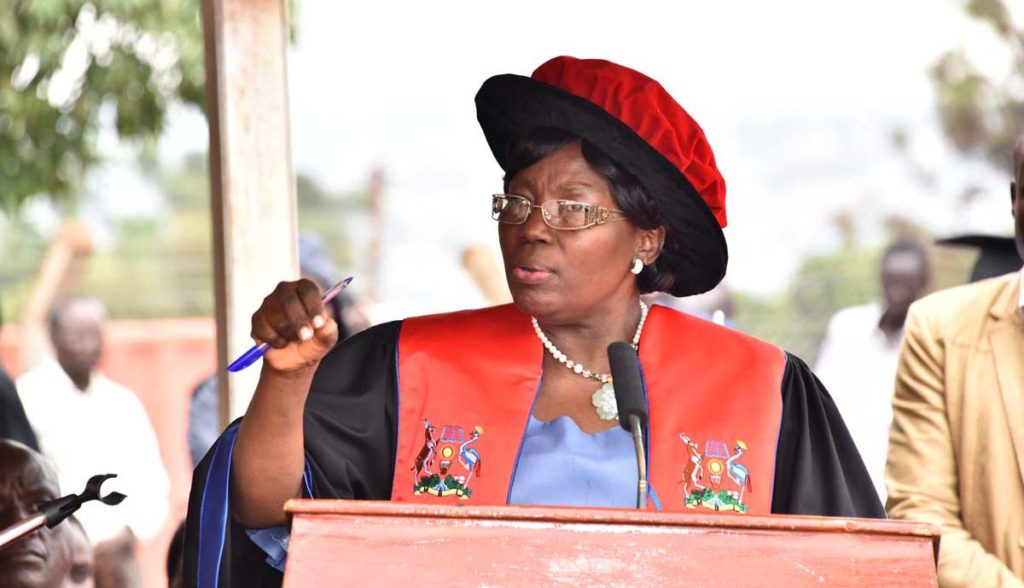
The Rt. Hon. Speaker of Parliament, Rebecca Kadaga, says that Parliament will continue demanding that government signs agreements with countries receiving Ugandans workers.
Kadaga said that there is need to identify the destinations Ugandans head to,, nature of work, working conditions and pay, before they leave.
“There is a need for memorandums of understanding between the government and the countries receiving Ugandans. We got an opportunity for our youth to get jobs in the Middle East and other countries but we must have it regulated,” she said.
Kadaga cited countries like Philippines that have agreements with receiving countries.
The Speaker made these remarks while presiding over the 13th graduation ceremony of Makerere Business Institute (MBI) on Friday, 7th July 2017.
This followed complaints from the MBI Director, Twesigye Nathan Itungo, who decried the misleading and persuasive adverts for lucrative opportunities in the Middle East and yet Ugandans who seek these opportunities end up being abused.
Twesigye who is also the Kashari South Member of Parliament added that confessions of Ugandans who have been working in the Middle East are heart breaking.
“It is slave trade in its modern form. Low pay, sexual harassment and assault are reported to be the order of the day. If well managed, it could offer alternative means of income especially to these fresh graduates, ” Twesigye said.
Kadaga however, said that, ‘despite the shortcomings, all is not lost since some Ugandans I interfaced with recently while in Dubai and Abu Dhabi, working at the airports and big hotels, didn’t have any complaints.’
The Speaker added that the problem is with traffickers who connive with relatives and sale Ugandans overseas.
“The Ministry of Gender must address the alarming situation of exploitation and harassment of Ugandans by receiving countries,” Kadaga said.
She called for close monitoring and supervision of labour exporting companies to avoid exploitation.
Over 1,000 students graduated at the Institute in different disciplines with 59 percent being female.
